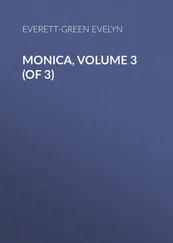Friedrich Max Müller - Chips from a German Workshop, Volume 1
Здесь есть возможность читать онлайн «Friedrich Max Müller - Chips from a German Workshop, Volume 1» — ознакомительный отрывок электронной книги совершенно бесплатно, а после прочтения отрывка купить полную версию. В некоторых случаях можно слушать аудио, скачать через торрент в формате fb2 и присутствует краткое содержание. Жанр: foreign_prose, foreign_antique, на английском языке. Описание произведения, (предисловие) а так же отзывы посетителей доступны на портале библиотеки ЛибКат.
- Название:Chips from a German Workshop, Volume 1
- Автор:
- Жанр:
- Год:неизвестен
- ISBN:нет данных
- Рейтинг книги:3 / 5. Голосов: 1
-
Избранное:Добавить в избранное
- Отзывы:
-
Ваша оценка:
- 60
- 1
- 2
- 3
- 4
- 5
Chips from a German Workshop, Volume 1: краткое содержание, описание и аннотация
Предлагаем к чтению аннотацию, описание, краткое содержание или предисловие (зависит от того, что написал сам автор книги «Chips from a German Workshop, Volume 1»). Если вы не нашли необходимую информацию о книге — напишите в комментариях, мы постараемся отыскать её.
Chips from a German Workshop, Volume 1 — читать онлайн ознакомительный отрывок
Ниже представлен текст книги, разбитый по страницам. Система сохранения места последней прочитанной страницы, позволяет с удобством читать онлайн бесплатно книгу «Chips from a German Workshop, Volume 1», без необходимости каждый раз заново искать на чём Вы остановились. Поставьте закладку, и сможете в любой момент перейти на страницу, на которой закончили чтение.
Интервал:
Закладка:
Every religion, even the most imperfect and degraded, has something that ought to be sacred to us, for there is in all religions a secret yearning after the true, though unknown, God. Whether we see the Papua squatting in dumb meditation before his fetish, or whether we listen to Firdusi exclaiming: 'The heighth and the depth of the whole world have their centre in Thee, O my God! I do not know Thee what Thou art: but I know that Thou art what Thou alone canst be,'—we ought to feel that the place whereon we stand is holy ground. There are philosophers, no doubt, to whom both Christianity and all other religions are exploded errors, things belonging to the past, and to be replaced by more positive knowledge. To them the study of the religions of the world could only have a pathological interest, and their hearts could never warm at the sparks of truth that light up, like stars, the dark yet glorious night of the ancient world. They tell us that the world has passed through the phases of religious and metaphysical errors, in order to arrive at the safe haven of positive knowledge of facts. But if they would but study positive facts, if they would but read, patiently and thoughtfully, the history of the world, as it is, not as it might have been: they would see that, as in geology, so in the history of human thought, theoretic uniformity does not exist, and that the past is never altogether lost. The oldest formations of thought crop out everywhere, and if we dig but deep enough, we shall find that even the sandy desert in which we are asked to live, rests everywhere on the firm foundation of that primeval, yet indestructible granite of the human soul,—religious faith.
There are other philosophers again who would fain narrow the limits of the Divine government of the world to the history of the Jewish and of the Christian nations, who would grudge the very name of religion to the ancient creeds of the world, and to whom the name of natural religion has almost become a term of reproach. To them, too, I should like to say that if they would but study positive facts, if they would but read their own Bible, they would find that the greatness of Divine Love cannot be measured by human standards, and that God has never forsaken a single human soul that has not first forsaken Him. 'He hath made of one blood all nations of men, for to dwell on all the face of the earth; and hath determined the times before appointed, and the bounds of their habitation: that they should seek the Lord, if haply they might feel after him, and find him, though he be not far from every one of us,' If they would but dig deep enough, they too would find that what they contemptuously call natural religion, is in reality the greatest gift that God has bestowed on the children of man, and that without it, revealed religion itself would have no firm foundation, no living roots in the heart of man.
If by the essays here collected I should succeed in attracting more general attention towards an independent, yet reverent study of the ancient religions of the world, and in dispelling some of the prejudices with which so many have regarded the yearnings after truth embodied in the sacred writings of the Brahmans, the Zoroastrians, and the Buddhists, in the mythology of the Greeks and Romans, nay, even in the wild traditions and degraded customs of Polynesian savages, I shall consider myself amply rewarded for the labour which they have cost me. That they are not free from errors, in spite of a careful revision to which they have been submitted before I published them in this collection, I am fully aware, and I shall be grateful to any one who will point them out, little concerned whether it is done in a seemly or unseemly manner, as long as some new truth is elicited, or some old error effectually exploded. Though I have thought it right in preparing these essays for publication, to alter what I could no longer defend as true, and also, though rarely, to add some new facts that seemed essential for the purpose of establishing what I wished to prove, yet in the main they have been left as they were originally published. I have added to each the dates when they were written, these dates ranging over the last fifteen years, and I must beg my readers to bear these dates in mind when judging both of the form and the matter of these contributions towards a better knowledge of the creeds and prayers, the legends and customs of the ancient world.
M. M.Parks End, Oxford:
October , 1867.
I.
LECTURE ON THE VEDAS
OR THE SACRED BOOKS OF THE BRAHMANS, 9 9 Some of the points touched upon in this Lecture have been more fully treated in my 'History of Ancient Sanskrit Literature.' As the second edition of this work has been out of print for several years, I have here quoted a few passages from it in full.
DELIVERED AT THE PHILOSOPHICAL INSTITUTION, LEEDS, March, 1865
I have brought with me one volume of my edition of the Veda, and I should not wonder if it were the first copy of the work which has ever reached this busy town of Leeds. Nay, I confess I have some misgivings whether I have not undertaken a hopeless task, and I begin to doubt whether I shall succeed in explaining to you the interest which I feel for this ancient collection of sacred hymns, an interest which has never failed me while devoting to the publication of this voluminous work the best twenty years of my life. Many times have I been asked, But what is the Veda? Why should it be published? What are we likely to learn from a book composed nearly four thousand years ago, and intended from the beginning for an uncultivated race of mere heathens and savages,—a book which the natives of India have never published themselves, although, to the present day, they profess to regard it as the highest authority for their religion, morals, and philosophy? Are we, the people of England or of Europe, in the nineteenth century, likely to gain any new light on religious, moral, or philosophical questions from the old songs of the Brahmans? And is it so very certain that the whole book is not a modern forgery, without any substantial claims to that high antiquity which is ascribed to it by the Hindus, so that all the labour bestowed upon it would not only be labour lost, but throw discredit on our powers of discrimination, and make us a laughing-stock among the shrewd natives of India? These and similar questions I have had to answer many times when asked by others, and some of them when asked by myself, before embarking on so hazardous an undertaking as the publication of the Rig-veda and its ancient commentary. And, I believe, I am not mistaken in supposing that many of those who to-night have honoured me with their presence may have entertained similar doubts and misgivings when invited to listen to a Lecture 'On the Vedas or the Sacred Books of the Brahmans.'
I shall endeavour, therefore, as far as this is possible within the limits of one Lecture, to answer some of these questions, and to remove some of these doubts, by explaining to you, first, what the Veda really is, and, secondly, what importance it possesses, not only to the people of India, but to ourselves in Europe,—and here again, not only to the student of Oriental languages, but to every student of history, religion, or philosophy; to every man who has once felt the charm of tracing that mighty stream of human thought on which we ourselves are floating onward, back to its distant mountain-sources; to every one who has a heart for whatever has once filled the hearts of millions of human beings with their noblest hopes, and fears, and aspirations;—to every student of mankind in the fullest sense of that full and weighty word. Whoever claims that noble title must not forget, whether he examines the highest achievements of mankind in our own age, or the miserable failures of former ages, what man is, and in whose image and after whose likeness man was made. Whether listening to the shrieks of the Shaman sorcerers of Tatary, or to the odes of Pindar, or to the sacred songs of Paul Gerhard: whether looking at the pagodas of China, or the Parthenon of Athens, or the cathedral of Cologne: whether reading the sacred books of the Buddhists, of the Jews, or of those who worship God in spirit and in truth, we ought to be able to say, like the Emperor Maximilian, 'Homo sum, humani nihil a me alienum puto,' or, translating his words somewhat freely, 'I am a man, nothing pertaining to man I deem foreign to myself.' Yes, we must learn to read in the history of the whole human race something of our own history; and as in looking back on the story of our own life, we all dwell with a peculiar delight on the earliest chapters of our childhood, and try to find there the key to many of the riddles of our later life, it is but natural that the historian, too, should ponder with most intense interest over the few relics that have been preserved to him of the childhood of the human race. These relics are few indeed, and therefore very precious, and this I may venture to say, at the outset and without fear of contradiction, that there exists no literary relic that carries us back to a more primitive, or, if you like, more child-like state in the history of man 10 10 'In the sciences of law and society, old means not old in chronology, but in structure: that is most archaic which lies nearest to the beginning of human progress considered as a development, and that is most modern which is farthest removed from that beginning.'—J. F. McLennan, 'Primitive Marriage,' p. 8.
than the Veda. As the language of the Veda, the Sanskrit, is the most ancient type of the English of the present day, (Sanskrit and English are but varieties of one and the same language,) so its thoughts and feelings contain in reality the first roots and germs of that intellectual growth which by an unbroken chain connects our own generation with the ancestors of the Aryan race,—with those very people who at the rising and setting of the sun listened with trembling hearts to the songs of the Veda, that told them of bright powers above, and of a life to come after the sun of their own lives had set in the clouds of the evening. Those men were the true ancestors of our race; and the Veda is the oldest book we have in which to study the first beginnings of our language, and of all that is embodied in language. We are by nature Aryan, Indo-European, not Semitic: our spiritual kith and kin are to be found in India, Persia, Greece, Italy, Germany; not in Mesopotamia, Egypt, or Palestine. This is a fact that ought to be clearly perceived, and constantly kept in view, in order to understand the importance which the Veda has for us, after the lapse of more than three thousand years, and after ever so many changes in our language, thought, and religion.
Интервал:
Закладка:
Похожие книги на «Chips from a German Workshop, Volume 1»
Представляем Вашему вниманию похожие книги на «Chips from a German Workshop, Volume 1» списком для выбора. Мы отобрали схожую по названию и смыслу литературу в надежде предоставить читателям больше вариантов отыскать новые, интересные, ещё непрочитанные произведения.
Обсуждение, отзывы о книге «Chips from a German Workshop, Volume 1» и просто собственные мнения читателей. Оставьте ваши комментарии, напишите, что Вы думаете о произведении, его смысле или главных героях. Укажите что конкретно понравилось, а что нет, и почему Вы так считаете.












